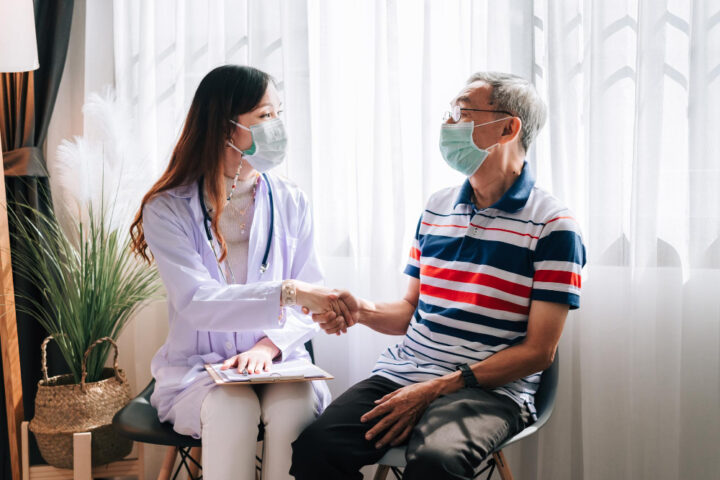Health choices could apparently be influenced or “nudged”. Consider the following hypothetical scene:
A patient is seeking surgeon’s advise on a much needed surgical procedure and its risks. He asked two equally competent surgeons the same question. “What is my risk of dying in this procedure doctor?”
Here’s what the two surgeons replied:
Doctor A: “Approximately one in 100 patients die in this procedure”.
Doctor B: “Approximately 99% of patients live well after this procedure”
If you are the patient, would you undergo the procedure? If so, who would you most likely ask to do the procedure on you? If not, which surgeon dissuaded you the most?
Hypothetical and simplistic, this happen in many patient- surgeon conversations. In many instances, our answers are quite predictable. I’d probably wouldn’t undergo this procedure if I was listening only to Doctor A. If I chose to undergo the procedure, I’d ask surgeon B to do the procedure on me. That is, even if my risk for the procedure is technically the same between the two surgeons!
Surprised? Don’t be. There’s nothing wrong with you either. Behavioural studies have suggested that many of our choices and consequent actions, aren’t as rational as we believe it to be. We’re homo sapiens after all.
Physicians are trained to provide patients and the public with the best possible or optimal health choices. We’re supposed to be adept at providing patients with evidence based health choices and convey this in a language the public would understand. Doctors are supposed to be experts on health statistics and evidence based researches in their own field. Prompt, timely and effective communication or feedback is also key for patients to make optimal health choices. But are we really providing patients these two essential choice adjunct for them to make optimal choices? Even experts in some fields don’t agree with each other’s interpretations of the “best evidence”. Just take for example, immunisation. More over, we’re not better with communicating or giving feedback to patients as well. Even minute differences in framing responses (such as the scenario above) weighs heavily on patient choice.
The rapid technological change in internet and communications was thought to democratise and exponentially increase access to health information. More information means better or more rational health choices. Apparently, that’s not always the case. More than half of current smokers wanted to quit but don’t. Many food and lifestyle related diseases such as obesity, hypertension, diabetes are still on the rise. More choices doesn’t necessarily end up with a optimal choices either. There’s a plethora of toothpaste choices in the grocery store but these did not significantly decrease the incidence tooth decay in the general population. A “no-harm-yeah-whatever- choice” isn’t also acceptable. Take the case of some vitamins and herbal medicines. Many of these are harmless to patients but are found out to be totally ineffective for diseases it is advertised for. Vitamins are still one of the most sought after over the counter substance in the Philippines.
Indeed, many behavioural studies have suggested that humans (physicians and patients included), don’t make optimal, rational choices most of the time. This is particularly true in fields which they lack expertise or effective communication abilities. In the field of medicine and health, healthcare professionals happen to be the the “experts”. Whatever communication abilities we have, patients (and colleagues) often seek our expertise for them to make rational health choices.
So how do we help patients make optimal decisions for their health? In this edition of #HealthXPh tweetchat, we’ll explore how healthcare professionals, policy makers, health professions students, patients and advocates help patients make optimal health choices. Whether you are a patient or a physician, here are our guide questions.
- T1. What for you, is the most important factor in making optimal choices health? Why?
- T2. What is least likely to influence your health choices? Why
- T3. When current evidence is vague or equivocal at best, what do you advice or who’s advice do you seek? Why?
Join us this Saturday May 12, 2018 9PM Manila time by tweeting your answers to our guide questions (and chiming in your response to others’ too) with the hashtag “#HealthXPh” between 9-10PM Manila time. Of course, for #HealthXPh your opinion matters.
References:
Kahneman, D. (2013). Thinking, fast and slow. New York: Farrar, Straus and Giroux.
Thaler, R. H. (2016). Misbehaving: The making of behavioral economics.
Thaler, R. H., & Sunstein, C. R. (2008). Nudge. New Haven: Yale University Press.
Nisbett, R. E. (2015). Mindware: Tool for smart thinking.





